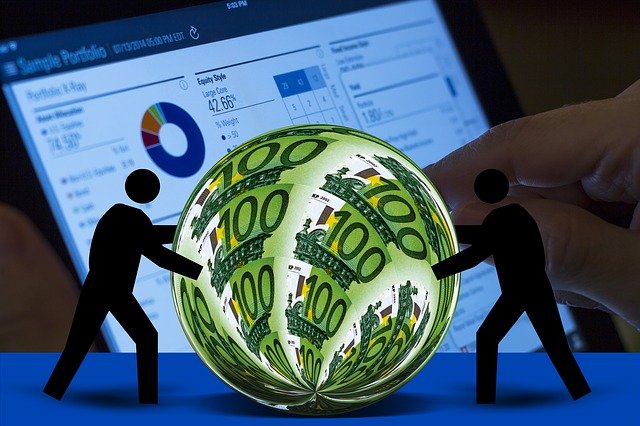Earlier this week, we discussed tax principles for Steemit authors (in the USA). But is Steemit really a job, or are we all giving each other a "gift?" Also, one might find it confusing that Steem Power, which is locked up on the platform and can't be monetized until Power Down, could be taxable income even before its Powered Down.
As this is an unclear and developing area of tax law, I thought it would be helpful to provide insight (and my rebuttal) to a few potential counterarguments against taxation of Steemit tokens.
Are Steemit Rewards Taxable in the USA (Part 2)? - Crypto Tax Blog Part I-B, Section 2
Before Reading This Article (Section B)
If you have not read the first installment regarding taxation of STEEM rewards, I recommend checking out the article posted earlier this week (“Section A” ):
https://steemit.com/steemit/@cryptotax/are-steemit-author-and-curation-rewards-taxable-usa-edition
To reiterate the first article, property that a U.S. person receives in exchange for their employment/independent services is taxable gross income, as long the property is either (1) transferrable or (2) no longer subject to a substantial risk of forfeiture (Section 83(a)). Bitcoin and some Altcoins including STEEM are treated as “property” if they are tradeable between users and can be bought sold for USD and other currencies (Notice 2014-21). Fair market value is calculated on the date the property is received, in order to value the amount of taxable gross income to the person (in excess of any amount paid to obtain the property).

** I. General Counterargument - Services or a Gift**
Under Section 83(a), if property is transferred related to the performance of services by a person, the person who performed the services has taxable “gross income.”
One potential counterargument is, are the authors/curators really performing a service on Steemit, and for whose benefit? Because if authors are not performing services, one could say they are just receiving a “gift”. In the U.S., when an individual (living human being) gifts to another person (recipient) money/property for less than full consideration in return, this is sometimes a nontaxable gift to the recipient (Section 102(a)).
Below is a description of STEEM from the FAQ:
“Steemit is a social media platform that works by having the crowd reward the crowd for their content….[next sentence redacted]”
“Most social media sites extract value from their user base for the benefit of shareholders alone. Steemit is different, it's a new kind of attention economy. By connecting with the Steem blockchain (which is decentralized and controlled by the crowd), Steemit users receive all the benefits and rewards for their attention.”
“Will I get a 1099 from Steemit?
No, you are not being paid by Steemit. The Steem network rewards you…[next sentence redacted]”
Even though authors are not paid by Steemit the company, authors are being compensated by the community, a community who receives the content in exchange for issuing rewards to authors through votes. The concept that everyone who is posting/curating is rewarded for the value of their content amplifies the argument that authors/curators on this platform are providing a service to the benefit of the platform (even though the company is not paying the users). Uber operates similarly, drivers provide value to riders, but the drivers are not paid by Uber – rather the by the users of Uber. So clearly the authors/curators are receiving STEEM tokens in a compensatory manner.
Way to get out of “services” classification?
Regs. §1.83-3(f) indicates that a transfer of property might not be “compensation for services” to the extent other parties could purchase the property under the same conditions without providing a service. For example, if an employee of a company receives a stock option to buy stock worth $100 for $20, and then the company turns around and offers stock worth $100 for $20 to outsiders in a public offering, then the stock might not to be subject to Section 83 in the employee’s perspective. As the Steemit FAQ’s discuss, the second standard way to obtain Steem tokens, other than author/curate, is to purchase Steem on an exchange, clearly not at the same terms as authors/curators (also there is no POW mining).
Conclusion
The argument that STEEMIT users are not providing a services (and thus are given tokens in a non-compensatory manner) is a weak one. In other words, Steemit is the social media equivalent of Uber rides, and Uber drivers have taxable income in the US, so it would unlikely be any different for Steemit authors.

II. Counter Arguments – STEEM Power Specific
Argument #1 – Restriction Argument
One common argument is the STEEM Power is locked up in the platform, therefore the user does not have access to the funds until they elect to “Power Down”.
It was discussed in the previous article, the date that IRS taxation of property occurs is when the property is first either (1) transferable or (2) not subject to substantial risk of forfeiture. Transferability effectively means the recipient of the property can dispose of their property by sale/other transfer to another party. Removal of substantial risk of forfeitures occurs when the person receiving property no longer risks losing the property as all of the required conditions to have a right to the property have been met.
In the case of Steemit, once the seven day monetization period ends on a post, the authors/curators receive their rewards; at this time the allocation of the rewarded Steem tokens is guaranteed to them, meaning there is no longer risk of forfeiture. In other words, it may take a while to power down SP for actual tradeable STEEM, but this is irrelevant in determining taxability on the basis of a risk of forfeiture.
A Power Down has to occur before transferring STEEM tokens to another person. Nevertheless, only the “risk of forfeiture” needs to be overcome before property is taxable under Section 83.
Conclusion
The restrictions on Steem Power are not significant enough to prevent taxation under Section 83 under the basis of “risk of forfeiture.”
Argument #2 – Valuation Argument
Another argument is that STEEM Power (SP) has no value until the point in which it is Powered into STEEM, due to the lock-up period of the Power Down. This is slightly different than having a “forfeiture risk” on the SP, rather this is a valuation dispute.
In enacting Code Section 83, Congress recognized that certain restrictions on a property were so burdensome that they permanently impact the value of the property (“non-lapse” restrictions). These non-lapse restrictions permanently reduce the fair market value of property for purposes of taxation. A non-lapse restriction is a permanent limitation on transferability of property which requires the recipient of the property to (1) sell the property at a predetermined price and (2) which will carry to any future owners of the property if it is sold.
Is SP considered property with a non-lapse restriction? The IRS/courts have ruled that under a lock-up agreement in a public offering (and insider trading windows), recipients of stock compensation are taxed when normally occurring, despite a lock-up preventing them recipient from selling the stock immediately. Some general examples are in Regulation 1.83-3 (Examples 6/7).Further, in public offering lock-ups, often the stock was also not considered to have a “nonlapse restriction” via the lock-up rules, thus the locked-up stock did not command a lower the value on the date of taxation vs. non-restricted stock.
Conclusion
Absent any guidance to the contrary, STEEM Power (SP) and SBD given to authors/curators each will meet the definition of taxable property that does not carry a risk of forfeiture upon receipt. A/K/A taxable income at the exchange equivalent value of SP and SBD.

Argument 3– Fundamental CVC classification Argument
A third argument is that STEEM Power (SP) is not both (1) tradeable between users and (2) convertible into USD (or USD equivalents), therefore SP is not actually property subject to Section 83 and Notice 2014-21 (classifying some cryptocurrency as “property”). From a very basic read, this may seem to be the case as SP is not bought/sold on an exchange, while at the same time, STEEM and SBD can be.
However, the reality is SP leasing exists, meaning some form of trade between users is occurring; and that STEEM Power trades 1 for 1 into STEEM (pure STEEM which is tradeable between users).
In fact, the IRS may view STEEM Power as the same as the STEEM token, just that the STEEM is in a restricted account called “Steem Power.” Steem Power is really no different than restricted stock in a public company under a "lock-up." Under a lock-up, stock cannot be sold to the public market but still is stock.t
Takeaway
Absent any guidance to the contrary, STEEM Power and SBD given to authors/curators each will meet the definition of taxable property that does not carry a risk of forfeiture upon receipt. A/K/A taxable income. I am happy to take explore more angles, if you think of any additional potential counter-arguments please share with me!
Disclaimer: This series contains general discussion of U.S. taxes in a developing and unclear area of tax law. As always, you should consult your own tax advisor in your jurisdiction to determine your specific situation as this is not personal advice; and consider any future guidance by the Congress/IRS after the date of this article. Under Circular 230 to the extent it applies, this article cannot be used or relied on to avoid any tax or penalties in the U.S., its States or any other jurisdictions.
Picture Credit
https://pixabay.com/en/users/geralt-9301/
all good points. I have a question: If receiving steem is taxable income, would buying steem be an expense you can write off? In the example of Uber you would write off car expenses and costs of having a better car which would get you more money. The same with steem when buy steem with USD and that allows you to make more money because you have more steem power. So, putting your earned money into steem power is like putting your money into car upgrades.
You are onto it, the tax deductions associated with Steem will be a separate article. It's nice to see other people thinking these concepts! The equivalent to what an Uber driver could take as a potential tax deduction in the case of Steem is (1) business use of home (high risk to take this) (2) business use of computer (3) steem spent on upvotes/promotion/resteem services. This list is not all inclusive.
Another factor is whether writing for Steem is considered a trade/ business or a hobby.
The use of Steem acquired and powered up for the purpose of generating income. Well let me just say that's not an easy answer on whether we could take a tax write off for "depreciation" of steem power, but you defintely do have tax cost basis for the purchase of the Steem currency, so if you sell back for US money, tax basis reduces the gain. I would go as far to say worst case is that Steem Power on this platform is the equivalent of having land in the real world (it is permanent-lived and not depreciable but it has basis).
I'm just thinking creatively. I don't really know much about taxes but it seems there are many ways to think about this situation.
Very detailed. Thanks for sharing the info.
Speaking as a professional writer, I think I would have great difficulty arguing to an auditor that the profits listed in my books don't actually count as a "real" profit.
For that matter, the IRS is not going to complain if I pay more taxes than by some obscure technical argument I needed to.
But here's a better analogy than Uber: busking. A busker provides a service to the entire public which may or may not result in a single penny. But busking income is definitely taxable.
Thanks I will look into this "busking"!
@randowhale 101 - Everything You Need to Know!This post received a 4.15% upvote from @randowhale thanks to @cryptotax! To learn more, check out
I do not care at all..screw them!. my money is my money..
This post has received a 0.48 % upvote from @booster thanks to: @cryptotax.
Taxation is theft.
@originalworks
To call @OriginalWorks, simply reply to any post with @originalworks or !originalworks in your message!
For more information, Click Here!
To enter this post into the daily RESTEEM contest, upvote this comment! The user with the most upvotes on their @OriginalWorks comment will win!Special thanks to @reggaemuffin for being a supporter! Vote him as a witness to help make Steemit a better place!
Congratulations @cryptotax! You have completed some achievement on Steemit and have been rewarded with new badge(s) :
Click on any badge to view your own Board of Honor on SteemitBoard.
For more information about SteemitBoard, click here
If you no longer want to receive notifications, reply to this comment with the word
STOPI posted the following comment on your earlier article and I'm reposting it here in hopes you'll see at least one of them. Here is what I posted: "Thanks for the article. Do you offer services for calculating my Steem tax liability? I am having the hardest time trying to find a way to export the transaction data and even if I could I wouldn't know how to post the data properly for my form 8949."